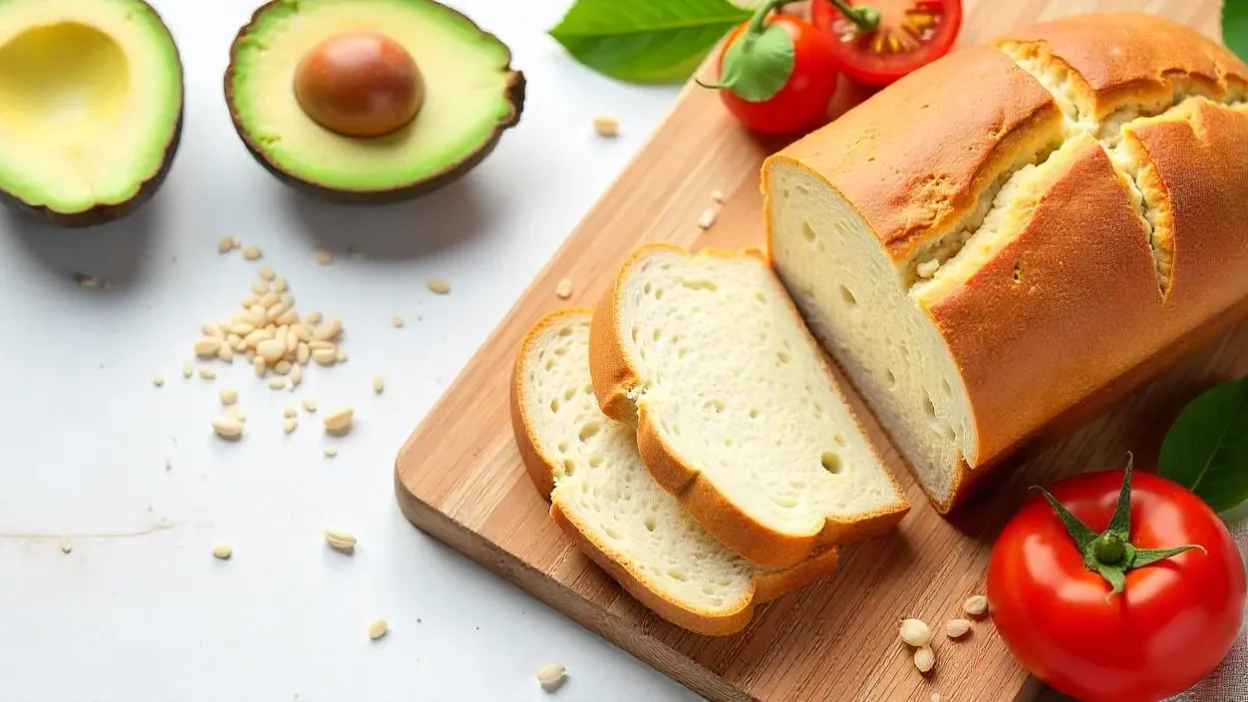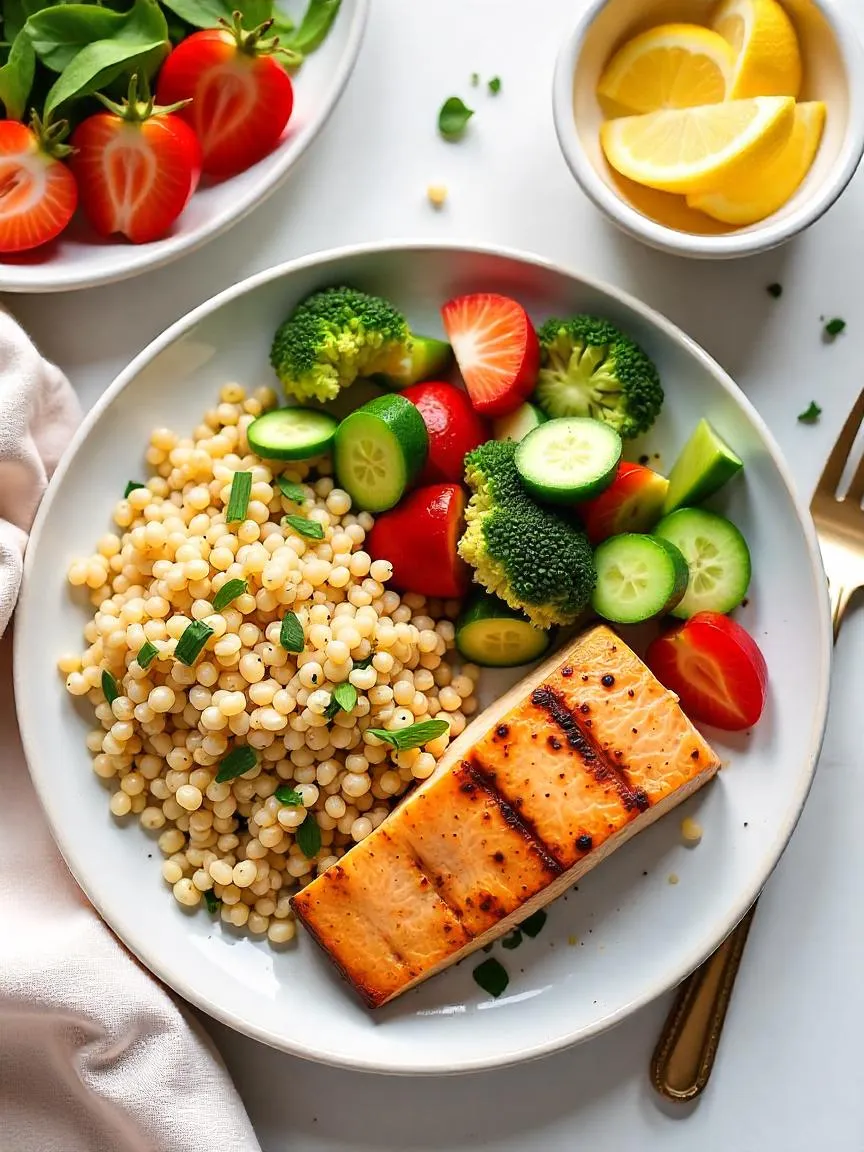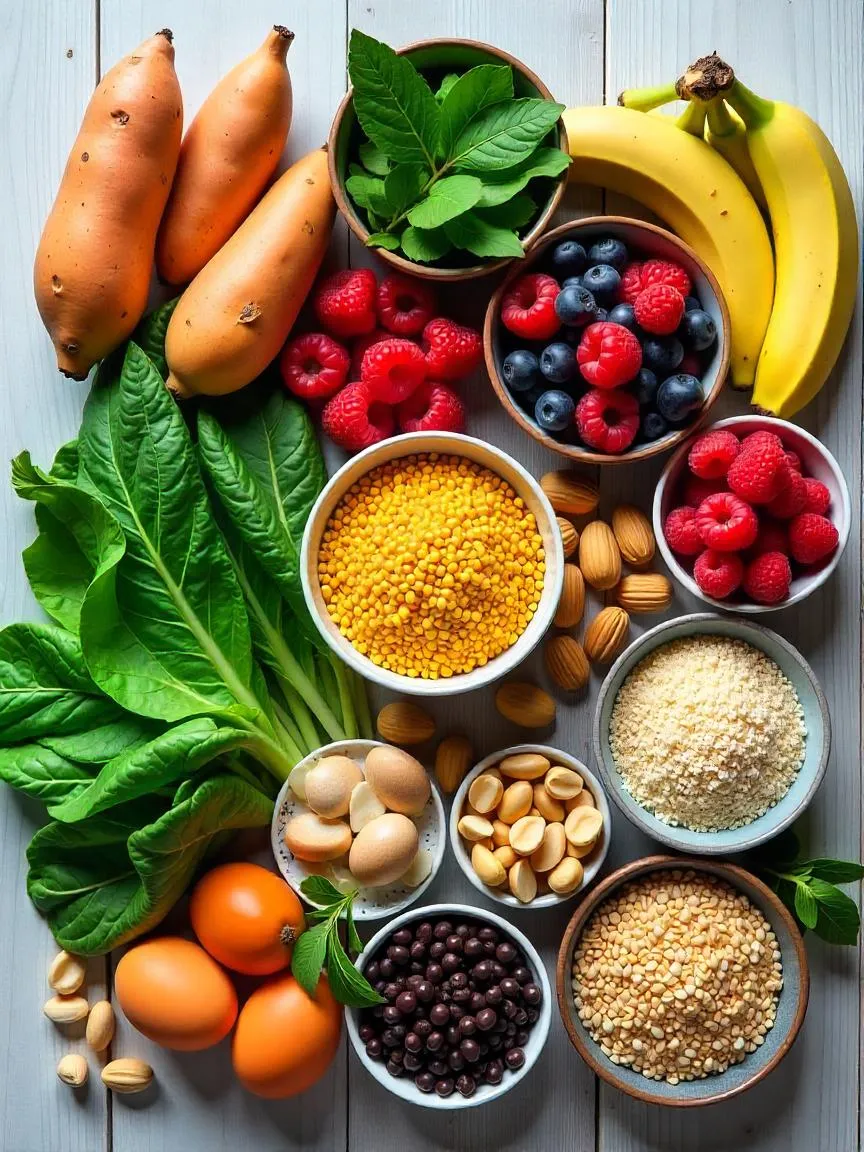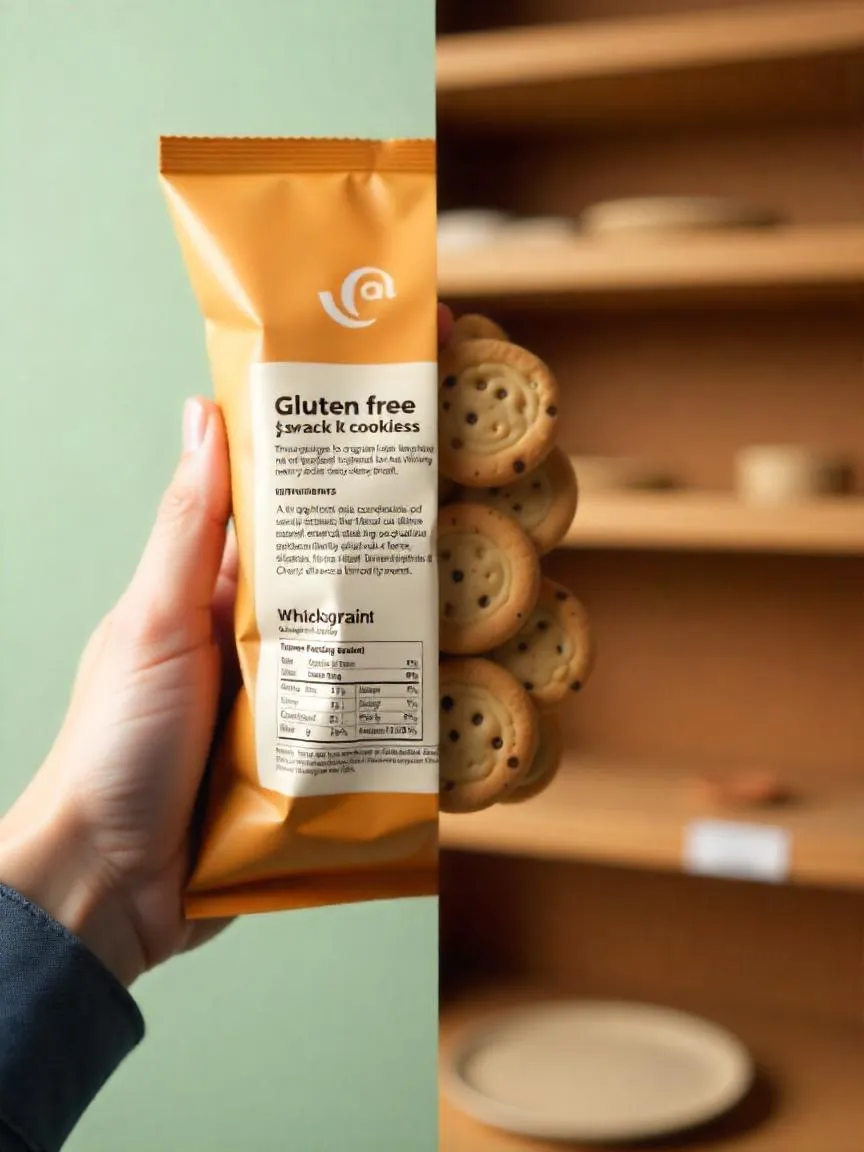Contents
- 🧪 What Is the Gluten-Free Diet—And Why Is Everyone Suddenly Trying It?
- 🥣 How the Gluten-Free Diet Works (Especially for Weight Loss)
- 📚 The Research So Far: What Science Says About Going Gluten-Free
- ⚠️ Potential Pitfalls of a Gluten-Free Diet (Especially for Non-Celiacs)
- ✅ Bottom Line: Is a Gluten-Free Diet Right for Weight Loss?
Feeling overwhelmed by all the diet advice out there? You’re not alone. From low-carb to low-fat, paleo to plant-based, the internet is bursting with promises of the “perfect” weight-loss solution.
One approach that’s gained massive popularity is the gluten-free diet—but not always for medical reasons. While it’s essential for people with celiac disease or gluten sensitivity, many others are ditching gluten in hopes of losing weight, improving digestion, or simply “eating cleaner.”
But does going gluten-free actually help with weight loss? Or is it just another wellness trend that sounds healthy but lacks real evidence?
🔍 In this article, we dive into:
- What a gluten-free diet really is
- Who actually needs it
- Why it became a weight-loss trend
- The science (or lack of it) behind gluten-free for weight loss
- Potential nutritional pitfalls to watch out for
Let’s break it down, slice by slice. 🍞👇
🧪 What Is the Gluten-Free Diet—And Why Is Everyone Suddenly Trying It?
At first glance, a gluten-free diet might sound like just another wellness trend—but it actually started as a medical necessity.
Gluten is a naturally occurring protein found in grains like wheat, barley, and rye. For people with celiac disease—around 1–2% of Americans—even tiny amounts of gluten can cause serious damage to the small intestine, leading to symptoms like:
- Chronic bloating or gas
- Fatigue
- Nutrient deficiencies
- Weight loss
- Long-term digestive damage
Another group, up to 6% of the population, may experience non-celiac gluten sensitivity, which brings milder symptoms like upset stomach, headaches, or brain fog—without the autoimmune response seen in celiac disease.
🚨 So why are gluten-free products everywhere?
That’s where things get interesting. Gluten-free eating has expanded far beyond medical needs. Fueled by celebrity endorsements, wellness influencers, and social media testimonials promising:
- Rapid weight loss
- Increased energy
- Smoother digestion
- Even clearer skin 🌟
—more and more people are jumping on the gluten-free train. In fact, nearly 1 in 3 Americans are now reducing or avoiding gluten—even without a medical reason.
💰 And the industry noticed…
Sales of gluten-free products have skyrocketed, topping $12 billion annually in the U.S. From bread and cereal to frozen dinners and snacks, the “gluten-free” label has become big business—often associated with being “cleaner,” “lighter,” or simply “healthier.”
But is that perception backed by science? And does cutting gluten really help with weight loss?
🥣 How the Gluten-Free Diet Works (Especially for Weight Loss)
At its core, a gluten-free diet eliminates all foods that contain or come in contact with gluten—a protein found in grains like wheat, rye, barley, and triticale.
Sounds simple? Not quite.
Gluten is hidden in many everyday products, including:
- 🍞 Bread, pasta, cereals, and crackers
- 🥣 Processed snacks and baked goods
- 🍜 Sauces and condiments like soy sauce, malt vinegar, and gravy
- 🧂 Additives and fillers like maltodextrin or wheat starch
Unless you’re cooking everything from scratch, it’s easy to get tripped up by sneaky gluten sources.
🚫 What happens when you cut gluten?
For many people, the most immediate change is having to ditch familiar staples like white bread, cookies, or regular pasta. These processed foods are often:
- High in added sugars
- Low in fiber
- Calorie-dense but not very filling
So, when you remove them—even without trying—you might naturally reduce calories and refined carbs. That can result in:
- ⚖️ Modest weight loss
- 🌿 Improved digestion
- 💡 Feeling more energized (thanks to better nutrient quality)
✅ Naturally gluten-free = more whole foods
Going gluten-free also encourages a return to naturally gluten-free ingredients, like:
- 🥦 Vegetables
- 🍓 Fruits
- 🍚 Whole gluten-free grains (brown rice, quinoa, millet, amaranth)
- 🥜 Nuts, seeds, and legumes
These foods are typically higher in fiber, antioxidants, and nutrients—all of which can contribute to better health and support gradual weight loss, especially when replacing more processed items.
But while this all sounds positive, not every gluten-free choice is healthy by default (hello, gluten-free cookies 🙃).
📚 The Research So Far: What Science Says About Going Gluten-Free
With so much buzz around gluten-free living, you might assume there’s strong evidence linking it to weight loss and better health. But here’s the reality:
👉 While research has looked at gluten-free diets for celiac disease, autism, and fibromyalgia, there’s surprisingly little to no clinical evidence that going gluten-free alone leads to weight loss in people without a medical need.
So what do the studies say? Let’s unpack it 👇
❗1. Nutrient Deficiencies Are Common
People with celiac disease who follow a strict gluten-free diet long-term have been found to have:
- Low fiber intake
- Inadequate iron and calcium
- Deficiencies in B vitamins like thiamin, riboflavin, niacin, and folate
Many gluten-free packaged foods are made from refined rice flour or starches, which often lack essential nutrients found in whole wheat and fortified cereals.
❤️ 2. Whole Grain Avoidance May Raise Disease Risk
A large study involving over 100,000 participants without celiac disease found that those who voluntarily limited gluten intake also reduced their intake of whole grains—and, in turn, had a higher risk of heart disease.
In contrast, people who eat 2–3 servings of whole grains daily have consistently been shown to have a lower risk of:
- Heart disease ❤️
- Stroke 🧠
- Type 2 diabetes 🩸
- Early death from all causes ⚰️
🦠 3. Gluten May Actually Be Good for Your Gut
This might surprise you: gluten contains a prebiotic carbohydrate called arabinoxylan oligosaccharide, which feeds beneficial gut bacteria—specifically bifidobacteria, linked to improved digestion and immune health.
Removing gluten could potentially disrupt your gut microbiome, especially if not replaced with other fiber-rich foods like legumes, oats, and seeds.
⚖️ 4. Gluten-Free ≠ Weight Loss (It May Even Backfire)
While some people do report weight loss when first going gluten-free, studies of people with celiac disease found that weight gain is common once symptoms improve. Why?
- Nutrient absorption improves (finally!)
- Appetite increases due to reduced discomfort
- Many turn to gluten-free processed foods, which are often high in:
- 🔺 Sugar
- 🔺 Refined starches
- 🔺 Calories and fat
📌 In other words: replacing bread with gluten-free cookies isn’t exactly a health upgrade.
So, what’s the bottom line? While going gluten-free might make you more mindful of food choices, it’s not a guaranteed weight-loss tool—and can bring some nutritional trade-offs if you’re not careful.
⚠️ Potential Pitfalls of a Gluten-Free Diet (Especially for Non-Celiacs)
Going gluten-free might sound like the healthy thing to do—but looks can be deceiving.
One of the biggest issues with gluten-free eating in the general population is the “health halo” effect. 🧠✨
💡 What’s the health halo?
It’s when people assume a product is healthy just because one aspect of it seems good.
In this case: the label “gluten-free.”
So what happens?
- People tend to overeat gluten-free products, thinking they’re automatically lower in calories or better for weight loss.
- That false sense of healthiness can actually backfire—and lead to weight gain.
🍪 Gluten-Free Junk Food Is Still… Junk Food
There’s a booming market of gluten-free cookies, crackers, frozen pizzas, and snack bars. But here’s the catch: many of these are ultra-processed, loaded with:
- 🚫 Added sugars
- 🚫 Refined starches
- 🚫 Saturated fats
- 🚫 Low fiber
If these foods make up a big part of your diet, you may miss out on:
- 🌾 Whole grains
- 💪 B vitamins
- 🧠 Fiber—all of which help regulate energy, digestion, and disease prevention
🧯 Nutritional imbalance = increased health risk
Over time, an unbalanced gluten-free diet may contribute to:
- Constipation or bloating (from low fiber)
- Fatigue (from low iron or B12)
- Higher risk of heart disease (from lack of whole grains)
So unless you need to be gluten-free, relying heavily on processed alternatives might do more harm than good.
Next, let’s see what the bottom line is—should you try this diet if you’re looking to lose weight or improve your health?
✅ Bottom Line: Is a Gluten-Free Diet Right for Weight Loss?
A gluten-free diet is essential for people with:
- Celiac disease
- Non-celiac gluten sensitivity
For them, removing gluten improves digestion, nutrient absorption, and overall well-being.
👉 But for the general population? There’s no strong scientific evidence that going gluten-free leads to weight loss or provides additional health benefits.
In fact:
- It may increase the risk of nutrient deficiencies
- It often leads to a lower intake of whole grains—which are linked to better heart and metabolic health
- And over-relying on processed gluten-free foods could actually lead to weight gain
✅ So what’s the smarter move?
If you’re trying to eat healthier or manage weight:
- Focus on minimally processed whole foods
- Choose high-fiber whole grains (like oats, quinoa, and whole wheat)
- Cut back on refined carbs and added sugars—not gluten itself
🌾 For most people, gluten isn’t the problem. The quality of the diet as a whole is what matters most.










